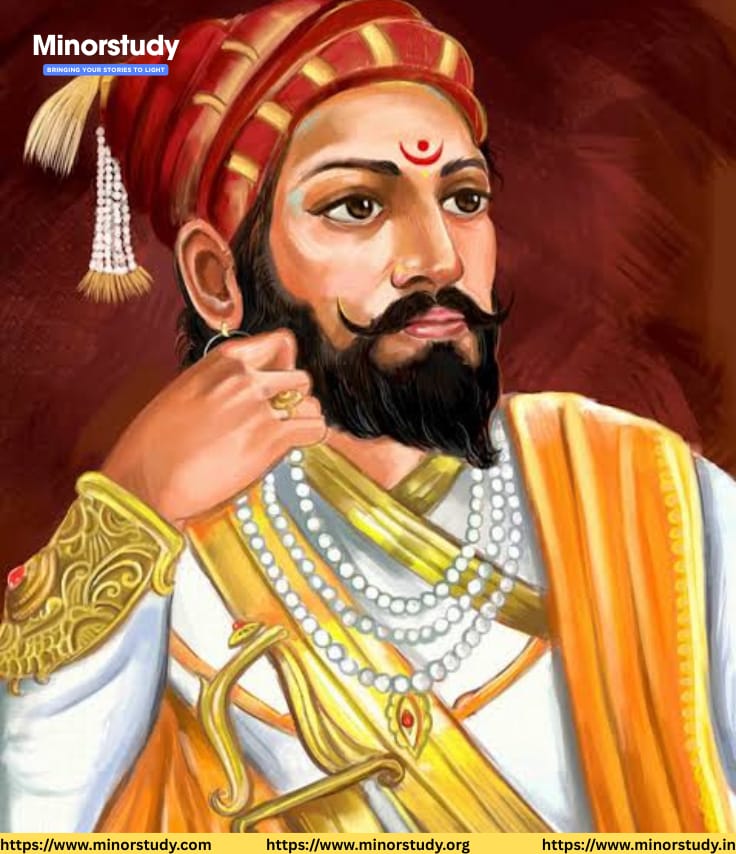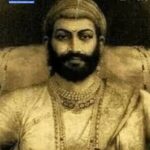🏹 Introduction: The Legend of Chhatrapati Shivaji Maharaj
Chhatrapati Shivaji Maharaj, the founder of the Maratha Empire, is not just a historical figure but a symbol of courage, governance, and self-respect for millions of Indians. He was a visionary warrior king whose leadership reshaped the power dynamics of 17th-century India. Shivaji Maharaj’s ideals of Swarajya (self-rule), diplomatic brilliance, and guerrilla warfare tactics left a lasting impression on India’s political and cultural map.
In this comprehensive tribute, we dive deep into his history, major events, inspiring facts, significance in society, daily life impact, and reasons why Shivaji remains unforgettable even centuries after his reign.
📜 History of Chhatrapati Shivaji Maharaj
🌄 Early Life
Born: February 19, 1630, at the Shivneri Fort (in present-day Maharashtra)
Parents: Shahaji Bhosale and Jijabai
Guru: Dadoji Konddeo (trainer and administrator)
Raised by a deeply spiritual and nationalist mother, Jijabai, Shivaji’s upbringing was rich in tales from the Ramayana and Mahabharata, nurturing his ideals of dharma and justice. He grew up amidst political instability under Mughal and Deccan Sultanate rule, which shaped his desire for a sovereign Hindu kingdom.
⚔️ Founding the Maratha Empire
At just 16 years old, Shivaji began capturing forts like Torna, Kondana (later renamed Sinhagad), and Purandar, challenging powerful enemies like the Adil Shahi Sultanate and later, the Mughal Empire.
Key Milestones:
1659 – Killed Afzal Khan using a concealed tiger-claw weapon (wagh nakh)
1664 – Raided and sacked the wealthy Mughal port of Surat
1666 – Escaped house arrest in Agra using a brilliant strategy inside fruit baskets
1674 – Crowned as Chhatrapati (sovereign ruler) at Raigad Fort, establishing formal Maratha rule
🧠 10 Powerful Facts About Chhatrapati Shivaji Maharaj
Pioneer of Guerrilla Warfare – Shivaji’s innovative tactics like sudden ambushes and terrain advantage revolutionized Indian military strategies.
Respect for Women – He strongly discouraged the harassment of women and punished those who violated this principle—even during raids.
Fort Architect & Visionary – Constructed over 350 strategically placed forts, including Rajgad, Raigad, and Pratapgad.
Naval Power Builder – He established a Maratha Navy to protect the Konkan coastline, an unprecedented move in medieval Indian warfare.
Secular Administrator – Employed people of all faiths, including Muslims, as trusted generals and governors.
Sharp Diplomat – Maintained strategic relations with foreign entities like the Portuguese, British, and even Mughals when necessary.
Coronation Ceremony – Performed Vedic rituals with priests from Kashi to validate his Hindu king status, reviving ancient dharmic traditions.
Swarajya Idealist – His concept of self-rule went beyond politics—he believed in freedom with responsibility and ethical governance.
Lover of Language – Promoted Marathi and Sanskrit over Persian in his court—a cultural revolution of its time.
Posthumous Legacy – His life inspired generations of freedom fighters, including Bal Gangadhar Tilak and Netaji Subhash Chandra Bose.
📅 Timeline of Shivaji Maharaj’s Life
| Year | Event |
|---|---|
| 1630 | Birth at Shivneri Fort |
| 1645 | First oath of Swarajya at Raireshwar Temple |
| 1647 | Capture of Torna Fort |
| 1659 | Victory over Afzal Khan |
| 1664 | Surat raid |
| 1666 | Escape from Agra |
| 1670 | Recapture of forts from Mughals |
| 1674 | Coronation as Chhatrapati |
| 1680 | Death at Raigad Fort |
🎯 Significance in Indian History and Culture
Father of the Indian Navy: Shivaji recognized the importance of maritime defense, long before others did.
Icon of Hindu Revivalism: His rule marked the rise of Hindu identity in politics after centuries of foreign domination.
Administrative Reformer: Introduced systems like Ashta Pradhan (council of eight ministers) for efficient governance.
Cultural Renaissance: Encouraged local traditions, festivals, and temple building, creating a cultural ecosystem that lives on.
🎉 Observances & Celebrations
Shivaji Jayanti (Observed on February 19 every year)
Celebrated with parades, cultural programs, reenactments of historic battles, and inspiring speeches across Maharashtra and India.
Statues of Shivaji Maharaj are decorated with flowers and garlands.
Schools conduct essay competitions, debates, and drawing contests in his honor.
💬 FAQs About Shivaji Maharaj
Q1: Was Shivaji Maharaj anti-Muslim?
A: No. He had Muslim commanders, built mosques, and respected all faiths. His wars were political, not religious.
Q2: What was Shivaji Maharaj’s greatest achievement?
A: Establishing Swarajya (self-rule) in a fragmented and hostile region, setting a precedent for future Indian freedom movements.
Q3: Why is Shivaji considered a symbol of justice?
A: He ensured fair treatment of citizens, respect for women, swift justice, and ethical warfare—even during conquests.
Q4: What was the role of Shivaji’s mother?
A: Jijabai was his spiritual guide and political inspiration. She instilled dharma and love for the motherland in Shivaji from childhood.
🙏 Wishing Message to Honor Shivaji Maharaj
“May the valiant spirit and fearless leadership of Chhatrapati Shivaji Maharaj continue to inspire us to uphold justice, unity, and courage. Jai Bhavani! Jai Shivaji!“
🌟 Importance in Our Lives Today
Shivaji Maharaj’s principles are deeply relevant even in the 21st century:
Leadership: He proved that strong leadership doesn’t require brute force alone but vision and ethics.
Justice: His governance model prioritised the common man’s welfare—something we still aspire to in modern democracies.
Courage: His fearless attitude in the face of powerful enemies reminds us to never bow to injustice.
Innovation: From guerrilla warfare to fort architecture and naval power, he was ahead of his time.
Cultural Integrity: In an era of cultural dilution, Shivaji’s model of embracing one’s roots with pride is both empowering and grounding.
🧭 Final Words: A King Who Was More Than a Monarch
Chhatrapati Shivaji Maharaj was not just a warrior, but a philosopher king, a moral leader, and a unifier. His story is more than just historical—it’s a source of daily motivation, a reminder of the power of righteous leadership, and a blueprint for what India can be when led by courage and wisdom.
In a world craving honest leadership and inclusive governance, Shivaji Maharaj’s life is a light that never dims. His legacy continues not only through statues and textbooks but through the hearts of people who believe in the spirit of self-rule, dignity, and justice.








